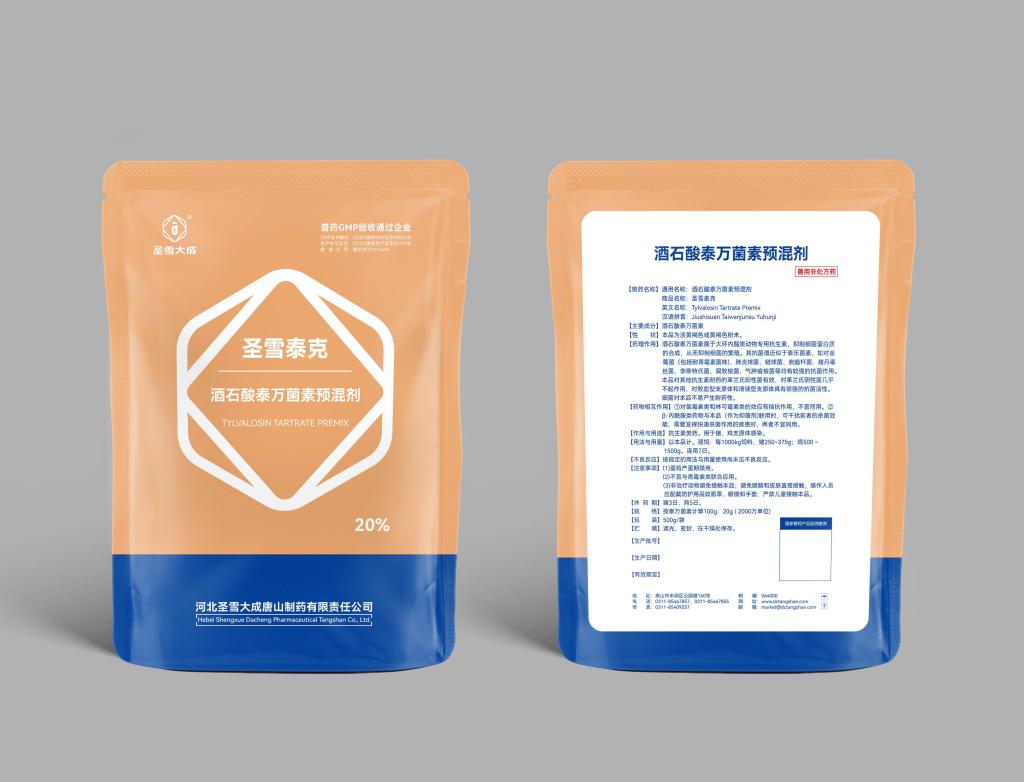Tel:+8618231198596

News
 CONTACT
CONTACT
 CONTACT
CONTACT
- Linkman:Linda Yao
- Tel: +8618231198596
- Email:linda.yao@dcpharma.cn
- Linkman:CHARLES.WANG
- Department:Overseas
- Tel: 0086 0311-85537378 0086 0311-85539701
News
Farmers appreciate the user-friendly nature of tylvalosin tartrate premix administration.
TIME:2024-08-21
Introduction:
Effective disease management is crucial for livestock health and welfare. Tylvalosin tartrate, a veterinary antibiotic, is commonly used to prevent and treat respiratory diseases in livestock. Administered as a premix, tylvalosin tartrate offers several advantages that simplify farm management and support ethical farming practices. This article explores the user-friendly nature of tylvalosin tartrate premix administration and its benefits for farmers.
Background on Tylvalosin Tartrate:
Tylvalosin tartrate is a macrolide antibiotic that is effective against a wide range of respiratory pathogens in livestock, particularly in swine and poultry. It is typically administered through the feed or water as a premix, making it a convenient and practical solution for farmers.
User-Friendly Administration:
1. Ease of Use:
Tylvalosin tartrate premix is designed for easy incorporation into livestock feed or water. This makes it simple for farmers to administer the correct dosage without the need for complex calculations or specialized equipment.
2. Uniform Distribution:
Premixes ensure uniform distribution of the antibiotic throughout the feed or water, which is crucial for effective treatment and disease prevention. This reduces the risk of underdosing or overdosing, which can compromise animal health and welfare.
3. Time Efficiency:
Administering tylvalosin tartrate as a premix saves time compared to individual dosing methods. Farmers can mix the premix into the feed or water once, and the antibiotic is then delivered to all animals, streamlining the treatment process and allowing farmers to focus on other aspects of farm management.
4. Reduced Stress for Animals:
Using a premix minimizes the need for handling and administering medication individually, which can be stressful for animals. This approach reduces the physical and psychological stress associated with treatment, contributing to better animal welfare.
5. Cost-Effective:
Premixes can be more cost-effective than individual dosing methods, especially for larger farms. By purchasing premixes in bulk, farmers can save money on the cost per dose and reduce waste associated with unused medication.
6. Enhanced Record Keeping:
The use of premixes facilitates record keeping and documentation, which is essential for compliance with regulations and ethical farming practices. Farmers can easily track the amount of antibiotic administered, ensuring accurate dosing and appropriate use.
Supporting Ethical Farming Practices:
1. Responsible Antibiotic Use:
Tylvalosin tartrate premix administration supports responsible antibiotic use by ensuring accurate dosing and reducing the need for unnecessary treatments. This approach is aligned with the principles of ethical farming and helps preserve the effectiveness of antibiotics for future generations.
2. Animal Welfare:
By preventing and treating diseases effectively, tylvalosin tartrate contributes to the health and welfare of livestock. Healthy animals are less stressed and more productive, which is beneficial for both the animals and the farmers.
3. Transparency and Traceability:
The use of premixes can be documented and tracked, providing transparency in the supply chain. This information can be shared with consumers who are increasingly interested in the ethical sourcing of their food products.
Conclusion:
The user-friendly nature of tylvalosin tartrate premix administration offers numerous benefits for farmers. It simplifies farm management, supports responsible antibiotic use, enhances animal welfare, and promotes ethical farming practices. As farmers continue to face challenges in livestock health management, the convenience and effectiveness of tylvalosin tartrate premix administration provide a valuable tool for maintaining healthy herds and flocks.
- Tel:+8618231198596
- Whatsapp:18231198596
- Chat With Skype







